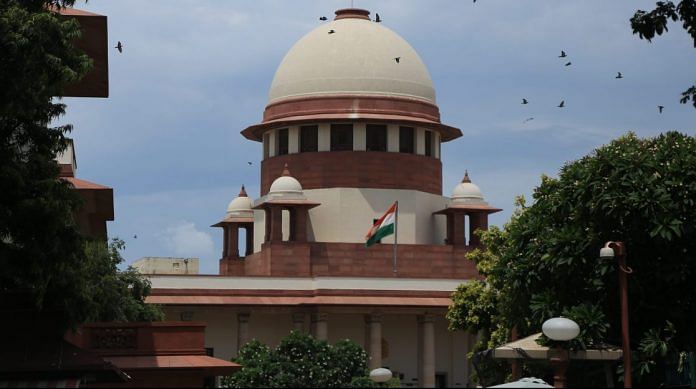Adultery is a crime because it damages marriage as an institution and family, govt tells the court.
New Delhi: The Supreme Court Wednesday asked the Centre “what public good” the penal law on adultery served as it provides that no offence would be made if the husband of a woman approves the adulterous relationship.
A five-judge constitution bench headed by Chief Justice Dipak Misra, which is hearing petitions challenging Section 497 of the IPC, was told by the Centre that adultery is a crime because it damages marriage as an institution and family.
Additional solicitor general Pinky Anand, appearing for the Centre, commenced her arguments by saying that adultery has been made an offence by keeping in mind the sanctity of marriage as an institution.
“What is the sanctity of marriage here. If consent of husband is taken then there is no adultery,” the bench said.
“What is this consent. There will be no offence if the husband consents to this relationship. What is this? What is the collective public good in section 497 to hold that this (adultery) is an offence,” the bench, also comprising Justices R.F. Nariman, A.M. Khanwilkar, D.Y. Chandrachud and Indu Malhotra, said.
The observation came when the Centre said that adultery should continue as penal offence as it poses a threat to sanctity of marriage.
Anand also said that judgement of foreign jurisdictions which had set aside adultery as a criminal offence should not be taken into account and the instant matter has to be decided on social conditions prevalent in India.
Referring to the inconsistencies in the penal provision, the bench said that the burden of maintaining the sanctity of marriage rests only with the woman and not the husband.
The advancing of arguments by the ASG will continue in the afternoon.
Section 497 of the 158-year-old IPC says: “Whoever has sexual intercourse with a person who is and whom he knows or has reason to believe to be the wife of another man, without the consent or connivance of that man, such sexual intercourse not amounting to the offence of rape, is guilty of the offence of adultery.”
On 5 January, the apex court referred to a five-judge constitution bench the plea challenging the validity of the penal law on adultery.
The court had taken a prima facie view that though the criminal law proceeds on “gender neutrality”, the concept was absent in Section 497. – PTI







So now, you will have to see the ethnicity of judge also!! Will a Bengali judge refuse to act as judge in a case between a Bengali and suppose an Assamese in Calcutta High court??
There is nothing wrong Justice Gogoi being a part of the NRC upgradation process. He is the right person to look into the matter seriously. The objection of the advocate is baseless and lack of vision.